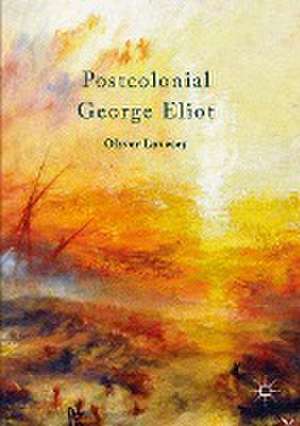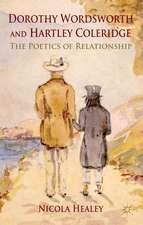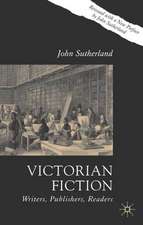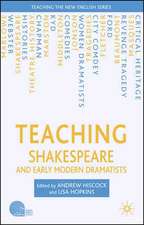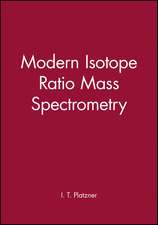Postcolonial George Eliot
Autor Oliver Loveseyen Limba Engleză Paperback – 8 iun 2023
| Toate formatele și edițiile | Preț | Express |
|---|---|---|
| Paperback (1) | 421.55 lei 6-8 săpt. | |
| Palgrave Macmillan UK – 8 iun 2023 | 421.55 lei 6-8 săpt. | |
| Hardback (1) | 503.37 lei 6-8 săpt. | |
| Palgrave Macmillan UK – 5 sep 2017 | 503.37 lei 6-8 săpt. |
Preț: 421.55 lei
Nou
Puncte Express: 632
Preț estimativ în valută:
80.66€ • 84.23$ • 66.61£
80.66€ • 84.23$ • 66.61£
Carte tipărită la comandă
Livrare economică 15-29 aprilie
Preluare comenzi: 021 569.72.76
Specificații
ISBN-13: 9781349673490
ISBN-10: 1349673498
Ilustrații: VII, 310 p.
Dimensiuni: 148 x 210 mm
Greutate: 0.42 kg
Ediția:1st ed. 2017
Editura: Palgrave Macmillan UK
Colecția Palgrave Macmillan
Locul publicării:London, United Kingdom
ISBN-10: 1349673498
Ilustrații: VII, 310 p.
Dimensiuni: 148 x 210 mm
Greutate: 0.42 kg
Ediția:1st ed. 2017
Editura: Palgrave Macmillan UK
Colecția Palgrave Macmillan
Locul publicării:London, United Kingdom
Cuprins
1. Introduction: George Eliot and the Victorian Postcolonial.- 2. Decolonizing Victorian Anthropology (Scenes of Clerical Life and Adam Bede).- 3. George Eliot and Victorian Islamophobia (Felix Holt's Colonial Subject.- 4. Middlemarch's Colonial Imaginary.- 5. Conclusion: The Leavis Tradition, Educational Assessment, and the Postcolonial Library.- Works Cited.
Notă biografică
Oliver Lovesey is Associate Professor of English at the University of British Columbia, Okanagan Campus, Canada. He has authored a number of monographs on George Eliot and Ngũgĩ wa Thiong’o, and edited Victorian Social Activists’ Novels, The Mill on the Floss, Approaches to Teaching the Works of Ngũgĩ, and a Popular Music and Society special issue: 'Popular Music and the Postcolonial'.
Textul de pe ultima copertă
This book examines the range of the colonial imaginary in Eliot’s works, from the domestic and regional to ancient and speculative colonialisms. It challenges monolithic, hegemonic views of George Eliot — whose novelistic career paralleled the creation of British India — and also dismissals of the postcolonial as ahistorical. It uncovers often-overlooked colonized figures in the novels. It also investigates Victorian Islamophobia in light of Eliot’s impatience with ignorance, intolerance, and xenophobia as well as her interrogation of the make-believe of endings. Drawing on a range of sources from Eugène Bodichon’s Algerian anthropological texts, the Persian journals of John Martyn, and postmodern re-engagements, Postcolonial George Eliot has implications for an understanding of the globalization of English, the decolonization of disciplinarity and periodization, and the roots of present-day conflict in the wider Mediterranean world.
Caracteristici
Challenges conventional views of George Eliot through exploring the range of the colonial imaginary in her work Uncovers frequently overlooked colonial figures in her novels and explores Victorian Islamophobia Draws on a compelling range of sources, such as Eugene Bodichon's Algerian anthropology texts, to better understand the roots of conflict in our postcolonial present Includes supplementary material: sn.pub/extras
